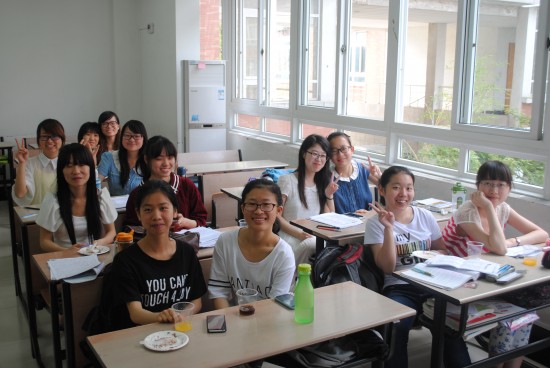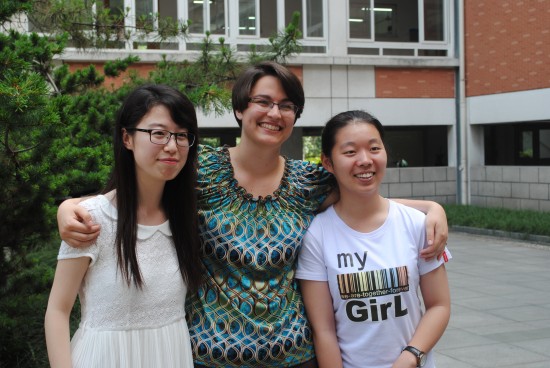Why Marriage in China is a Bad Business Deal for Women

 Many travelers experience an intrapersonal evolution during their time abroad. Only some are lucky enough to revisit the places that have had such a profound impact on the development of their personal identity.
Many travelers experience an intrapersonal evolution during their time abroad. Only some are lucky enough to revisit the places that have had such a profound impact on the development of their personal identity.
In my life thus far, I have traveled to China four different times. Each time I arrived, I have noticed a different part of myself bloom, resulting in maturity, self-assurance, and increased independence. All of these traits are valued in my home culture yet interestingly enough they impede my ability to connect with my Chinese peers.
As a single 24-year-old woman with no intention of getting married anytime soon, I am a bit of an enigma.
My university students (many of whom are close to my age) typically ask me whether or not I am married. When I say no, the follow up is always, “Well, do you have a boyfriend?” Again, my answer is no with an elaboration of, “I don’t want a relationship right now. I’m happy being single.”
As a single 24-year-old woman with no intention of getting married anytime soon, I am a bit of an enigma. In China, the social norm for women is to marry before the age of 27.
If they are unmarried when they turn 27+, they are given a social stigma. Many Chinese people view older, unmarried women negatively. They are described as selfish, picky or undesirable. (Does this sound familiar to anyone?) This trend in Chinese society has prompted my own personal research on the sheng nu (leftover women) phenomenon. Through my research, I have discovered an interesting paradox plaguing young Chinese women.

China’s One Child Policy – while not absolute – regulates families to only having one child. Many people are familiar with the female infanticide and abandonment that resulted from the establishment of this policy. Since the establishment of the One Child Policy, the Chinese government has launched campaigns to promote the worth of daughters to society.
Marriage in China is traditionally treated like a business deal. For a woman to marry a man of good social standing, she must meet certain standards.
Additionally, legal measures were put in place to prevent sex-based abortions. This means that, in China, it is illegal for the doctor to reveal the sex of a fetus to the expecting parents. As of 2013, this family planning policy has been amended to allow families the opportunity to have two children if the parents meet specific criteria. The social norm of having one child per family remains, however.
The hopes and dreams of the family are placed on this single child – regardless of its gender. The child is expected to perform well in school from day one. Families invest countless hours and finances to help ensure their child gets into college. For Chinese students, the process of getting into college is not an easy feat. Children spend their entire academic career preparing for a single exam called the gaokao. This test not only determines if the student is admitted to college, it also determines the type of institution the child qualifies for, as well as which major he/she can choose once in college.
Why Marriage in China is a Bad Business Deal for Women.
Many of my students believe their greatest failure in life was becoming an English major at my lower tier university. While some of them become debilitated by this belief, others insist on making the best of their circumstances.
My female students, however, don’t have high career aspirations.

Marriage in China is traditionally treated like a business deal. For a woman to marry a man of good social standing, she must meet certain standards. Having a college degree increases the marketability of the woman in question. She can’t be too successful, however. It is seen as shameful for a woman to earn more than her husband. Because of this, many successful career women are passed over in the marriage market in favor of less educated women.
Twice a semester, I give a lecture concerning women’s rights and influential females around the world.
Combined with the timeline for marriage, many Chinese women are pressured by society to forgo a career in favor of more traditional roles. This does not mean, however, that these women remain unemployed. The current economic climate of China dictates the need for a dual-income household. It does mean that, on average, Chinese women do not aspire to high positions of authority.
To combat this norm, I have introduced the concept of feminism to the students at my university. Twice a semester, I give a lecture concerning women’s rights and influential females around the world. In doing so, I have challenged some of my students to question the traditional roles of women in their society. Some students have even thanked me for enlightening them on the social ills of sexism in the global society. This teaching has not made me immune to sexist remarks from my students and colleagues, alike.
Still, the importance of gender equality is a conversation that needs to exist and I am more than happy to initiate it.
Top photo for Why Marriage in China is a Bad Business Deal for Women by Unsplash.









Hi Katie, I lived in Qingdao for 6 years. I had two female Chinese teachers who were both in their late 20’s and lived with their parents. Most of the money they made teaching Chinese to foreigners were given to their parents for “investments” for the future. Neither had a boyfriend. The reason for this (in their opinion) was about their physical appearance. “I am too fat” or “too skinny.” Both teachers were well educated and held masters degrees from Qingdao Ocean University. The Chinese affluent women who lived in my compound were a bit different. They will not marry or choose a husband unless he has enough money, because they do not want to work after marriage. Middle class women that I have met are working mothers and typically unhappy in their marriages and wish they had the courage to divorce. Many poor rural village women look for foreign husbands so they can get them to buy a house for their family and then ask for a divorce and more money. Also if they cannot afford to buy a home the marriage is off. A lot of pressure is being put on the groom and his family to buy property for newlyweds. And with the housing market in China out of control for most middle income families; couples now welcome and worship baby girls. Having a daughter alleviates the financial burdens that might be in 20 or 30 years. Hooray for girls!